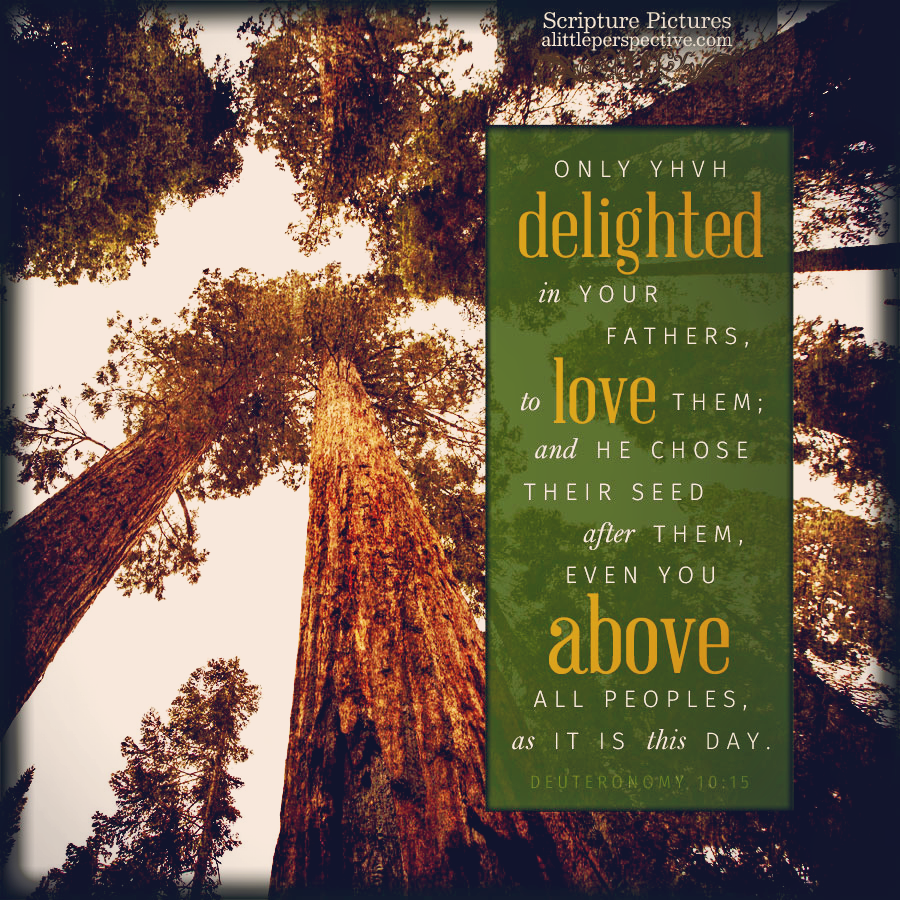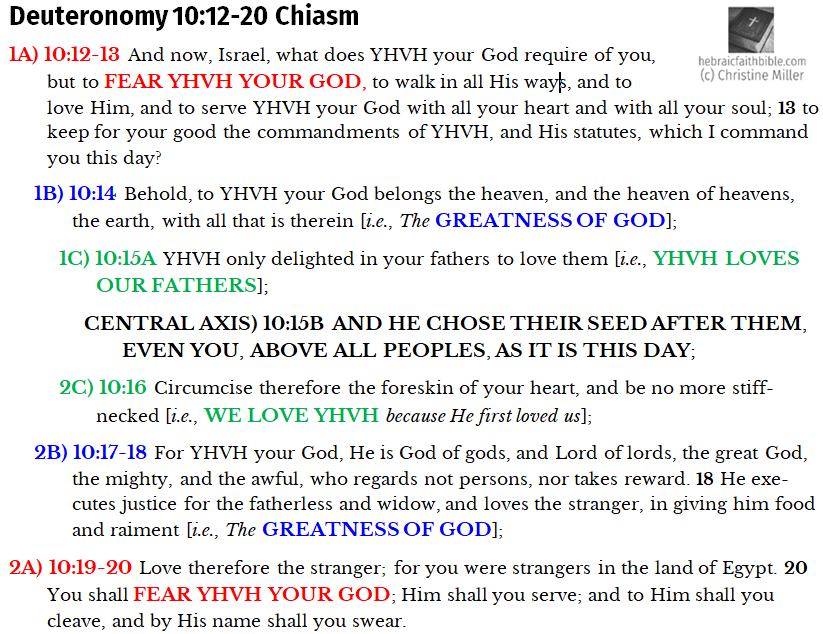Read Deuteronomy 10 here (text coming …) or at Bible Gateway.
The Hebrew Paragraphs:
10:1-11 {p} Israel enters the Land by the mediator of the covenant
10:12-11:9 {s} Fear, love and obey YHVH always for our good
Deu 10:12-11:9 makes its own Chiastic Structure, which includes this substructure:
The Father’s love, delight in, and acceptance of us is the center from which all things flow. The three actions the Father took on our behalf are:
To delight in is Strong’s H2836 in Hebrew חשק chashaq, a primitive verb meaning, “to set love upon.” The ancient pictographs are chet + shin + quph. The shin was transposed from an original sin due to their similar sounds.
chet ח = the wall, thus outside, divide, half
sin ס = the thorn, thus grab, hate, protect
quph ק = sun on the horizon, thus condense, circle, time
The parable being told according to the Hebrew Root Words is the fence (chet) of thorns (sin), as fences in those days were made of bundles of thorns joined together. From that picture comes being bound together (chet + sin) for the completeness of time (quph).
To love is Strong’s H157 in Hebrew אהב ahab, a primitive verb meaning “to desire, to breathe after.” The ancient pictographs are the aleph + hey + bet.
aleph א = the ox head, thus strength, power, leader
hey ה = man with upraised arms, thus look, reveal, wonder, worship, breath
bet ב = the house, thus house, household, family, in, within
The parable begins with the sense of wonder, even astonishment, and appreciation the man feels when beholding (hey) his family (bet). We do not choose the family into which we are born. And even the man’s wife, in those days, was not chosen by him, but was chosen for him by his father. So in the Hebraic way of thinking, the family—parents, siblings, wife, children, extended family and tribal clan—is a gift chosen for him and given to him by God. Thus the verb is “to give.” The concrete noun is “a gift.” The abstract concept is “love;” from the complex emotion, desires, and protectiveness which is inspired in the heart for one’s cherished gifts; i.e., one’s family. The addition of the aleph intensifies the meaning: strong (aleph) love (hey + bet).
To choose is Strong’s H977 in Hebrew בחר bachar, a primitive verb meaning, “to choose.” The ancient pictographs are the bet + chet + resh.
bet ב = the house, thus house, household, family, in, within
chet ח = the wall, thus outside, divide, half
resh ר = the head of man, thus head, first, top, beginning, man
The cognate words will help us find the story, two of which are slaughter, and knife. So beyond the house (bet) is the wall (chet), a metaphor for work that is done outside. Slaughtering an animal was a task performed outside the house. Slaughtering (bet + chet) that which is chiefest or choicest (resh) indicates the sacrifice, the firstfruits as the concrete noun; but an examination to determine the choicest, thus to choose, as the verb.
When God says He delighted in (chashaq) our fathers to love (ahab) them, and chose (bachar) us, their descendants, above all peoples, He means He bound Himself together with us, so that the connections and the entanglements formed could not be undone, for all time. This He did because His heart quickens with strong longing at the thought of us, and the actions He takes on our behalf reveals His Father’s heart of strong love for us. He has examined us and chosen us as the choicest above all peoples.


















Leave a Reply